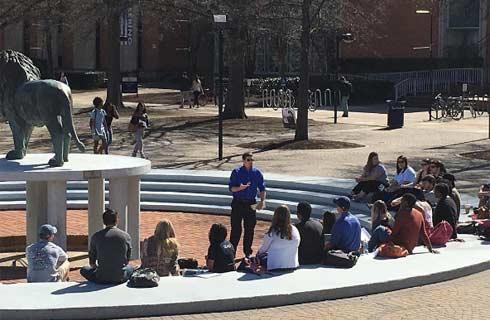信息硕士-档案和保存
Master of Information - Archives and Preservation

学历文凭
Masters Degree

专业院系
Communication

开学时间

课程时长

课程学费

国际学生入学条件
IDP—雅思考试联合主办方

雅思考试总分
6.5
- 雅思总分:6.5
- 托福网考总分:94
- 托福笔试总分:587
- 其他语言考试:NA
CRICOS代码:
申请截止日期: 请与IDP联系 以获取详细信息。
课程简介
This concentration will prepare students to assume the responsibilities and roles in identifying and preserving analog and digital records as trustworthy evidence and memory of the activities of individuals, families, and organizations. Students will learn how to make records accessible to current users and future generations in heritage institutions and how to make them available to the public. They will explore the institutions preserving cultural and scientific knowledge amid the changing perspectives and in diverse social contexts. They will learn about the tensions around privacy, access, and memorial contestation as well as about the role of records, documents, and archival institutions in human rights and social justice.
相关申请
 预科
预科 奖学金
奖学金 实习机会
实习机会 在校学习
在校学习 跨境学习
跨境学习 校园授课-线上开始
校园授课-线上开始 在线/远程学习
在线/远程学习
学校排名

世界排名168
数据源:
泰晤士高等教育世界大学排名
本校相关课程

Doctor of Philosophy in Women's and Gender Studies
学历文凭
Ph.D.
开学日期
课程费用总额


Doctor of Philosophy in Spanish Literature and Culture
学历文凭
Ph.D.
开学日期
课程费用总额


Doctor of Philosophy in Sociology
学历文凭
Ph.D.
开学日期
课程费用总额


Doctor of Philosophy in Social Work
学历文凭
Ph.D.
开学日期
课程费用总额


Doctor of Philosophy in Psychology
学历文凭
Ph.D.
开学日期
课程费用总额


Doctor of Philosophy in Political Science
学历文凭
Ph.D.
开学日期
课程费用总额

其他相关课程

图书馆与信息技术文凭
 萨省理工学院
萨省理工学院学历文凭
Bachelor Degree
开学日期
课程费用总额


图书馆与信息技术文凭
 菲莎河谷大学
菲莎河谷大学学历文凭
Bachelor Degree
开学日期
课程费用总额


信息技术(荣誉)文学士学位
 约克大学
约克大学学历文凭
Bachelor Degree with Honours
开学日期
课程费用总额


安大略省信息技术解决方案研究生证书
 汉博学院
汉博学院学历文凭
Graduate Certificate
开学日期
课程费用总额


图书馆与信息技术文凭
 麦科文大学
麦科文大学学历文凭
Bachelor Degree
开学日期
课程费用总额


安大略大学信息技术支持服务文凭
 谢尔丹学院
谢尔丹学院学历文凭
Bachelor Degree
开学日期
课程费用总额









 美国
美国
